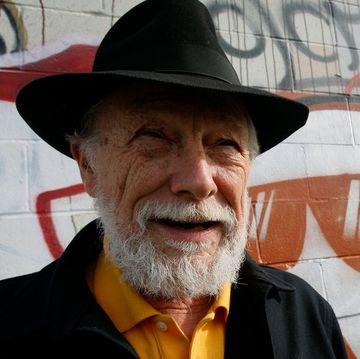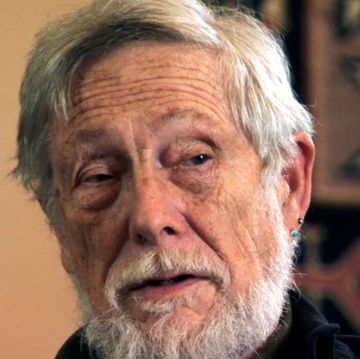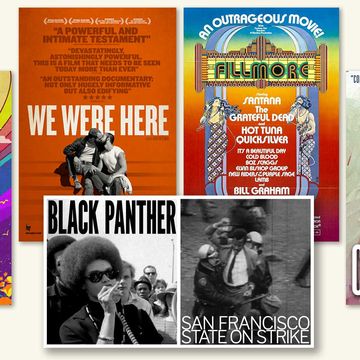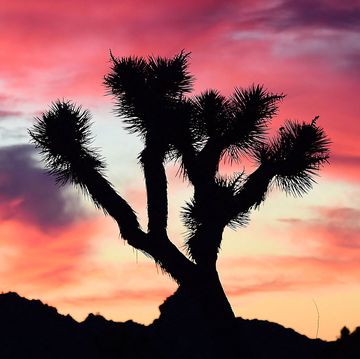To read a Dave Eggers book is to immerse oneself in the best version of a reading experience.
Narratives soar to new places and buzz with energy. Covers and book jackets are intricately designed and occasionally three-dimensional. In the best way possible, these books take readers to new places without letting them forget where they are or what should capture their attention, from humanitarian crises to impending doom to the wonders of friendship.
Some say Eggers is old-fashioned: he writes on an outdated computer, prefers letters to email, and publishes books in which characters careen toward the end of society because of the accelerated development of technology. This month’s California Book Club selection, The Every, is the best example of that. Ambitious Delaney Wells gets a job at the Every, a corporate superpower and thinly veiled combination of Google and Amazon (with hints of Meta). She intends to take down the machine from the inside. Her progress and battle against the late-capitalist monster make for a captivating, fast-paced read, revealing the things we hold dear that could be lost to mass development.
One of Eggers’s best writing traits is his ability to capture an energy that hooks readers without removing them from the emotionality of his subject matter. Characters in Eggers’s work are realistically messy and scattered in their thoughts. His hyperactive style appeared with his first work, A Heartbreaking Work of Staggering Genius, a memoir about moving to California and raising his eight-year-old brother after their parents die. This book is where Eggers first revealed his aptitude for sweeping descriptions that fly off the page, particularly in trips down Highway 1, when the car seems to soar with energy. His later books set in the Bay Area contain similar appreciations of the landscape, along with a cemented Northern California attitude: inventive, nature-oriented, and often countercultural. Some of the shocking scenes in The Every come from how technology allows us to separate ourselves from the world around us and how defensive and removed we can become in the process.
A Heartbreaking Work of Staggering Genius set off a series of innovative books that emerged with rapid speed. Between his initial success and his more recent venture into Bay Area tech dystopia, Eggers turned to fiction in far-flung places, first with the daring and adventurous You Shall Know Our Velocity and then with the researched, political What Is the What, based on the life of Valentino Achak Deng, who emigrated on foot from Sudan and eventually made his way to the United States. Eggers’s work is grounded in reality, often with political or humanitarian themes. In How We Are Hungry, he experiments with narrators in short stories, from a group of climbers embarking up Mount Kilimanjaro to a dog in the tide of a rushing river. His scenes and characters change, although they tend to revolve around travel and companionship. For his return to nonfiction after A Heartbreaking Work of Staggering Genius, Eggers headed to New Orleans post–Hurricane Katrina, writing Zeitoun, a biography of a man who stayed in the city after his family had evacuated and canoed through the streets to provide for his neighbors.
Even as Eggers strayed away from California throughout the 2010s, his reverence for human connection, particularly that of families, remained. Eggers primarily published fiction for children and adults, including 2012 National Book Award finalist A Hologram for the King, following an American businessman who bets on a risky deal in Saudi Arabia to save his family. In 2016’s Heroes of the Frontier, facing financial ruin, her ex-husband’s new marriage, and grief, Josie takes her two young children on a half-baked trip to Alaska in a dilapidated rented RV, facing everything from nasty sewage issues to wildfires. Crisis situations reveal what truly matters to these characters and what they’re willing to sacrifice to get it.
In the past few years, three Eggers releases from publisher McSweeney’s—The Museum of Rain, The Honor of Your Presence, and The Eyes and the Impossible—are the rare novellas given the love of a full-length novel, reflected in part by the gorgeously designed covers. Human connection and family are in full force in the first two books, about relatively simple journeys that contain their own kind of hope. These two will become part of a larger collection, titled The Forgetters, with more novellas to come.
And of course, the world of The Every was first built in Eggers’s 2013 novel, The Circle—that is, if you don’t consider our current dystopian reality. In The Circle, we first meet Mae Holland, who walks the same complicated line as Delaney does in The Every as she gets caught in the corporate world of the booming Circle company. Mae reappears in The Every, a different person than she was in The Circle, and her interactions with Delaney reveal just how far the company will go for success—and how what we gain from the leaps of technology can separate us from the worlds and the people we most value. The question is whether Delaney will be able to hold on to this world or whether she’ll bend to the temptations of the Every.•
Join us on February 15 at 5 p.m. Pacific, when Eggers will appear in conversation with special guest Caterina Fake and California Book Club host John Freeman to discuss The Every. Register for the Zoom conversation here.
EXCERPT
Get started on this month’s book, and read the first few pages of The Every. —Alta
YEAR’S BEST CHILDREN’S BOOK
Dave Eggers won the prestigious John Newbery Medal for his book The Eyes and the Impossible, an adventure story for young people told from the perspective of a stray dog. —NPR
EVENT RECAP
If you missed last Thursday’s CBC event with D. J. Waldie, read our recap or watch it on video. —Alta
MIRRORS IN HISTORY
California Book Club host John Freeman writes about Lakewood and its relationship to historical developments around the world. —Alta
2020 WILDFIRE LESSONS
Chris Daley reviews Manjula Martin’s The Last Fire Season, which blends the personal with narrative nonfiction. The book takes up the 2020 Lightning Complex wildfires and calls for different strategies to address the “new shape of these cycles of damage and renewal” in California. —Alta
REVENGE AND REDEMPTION
Author and California Book Club contributor Gabino Iglesias reviews The Bullet Swallower, by author Elizabeth Gonzalez James, also a contributor. Iglesias calls it “a wildly entertaining” family saga. —Boston Globe
Alta’s California Book Club email newsletter is published weekly. Sign up for free and you also will receive four custom-designed bookplates.
Jessica Blough is an associate editor at Alta Journal. She is a graduate of Tufts University and former editor in chief of the Tufts Daily.



















